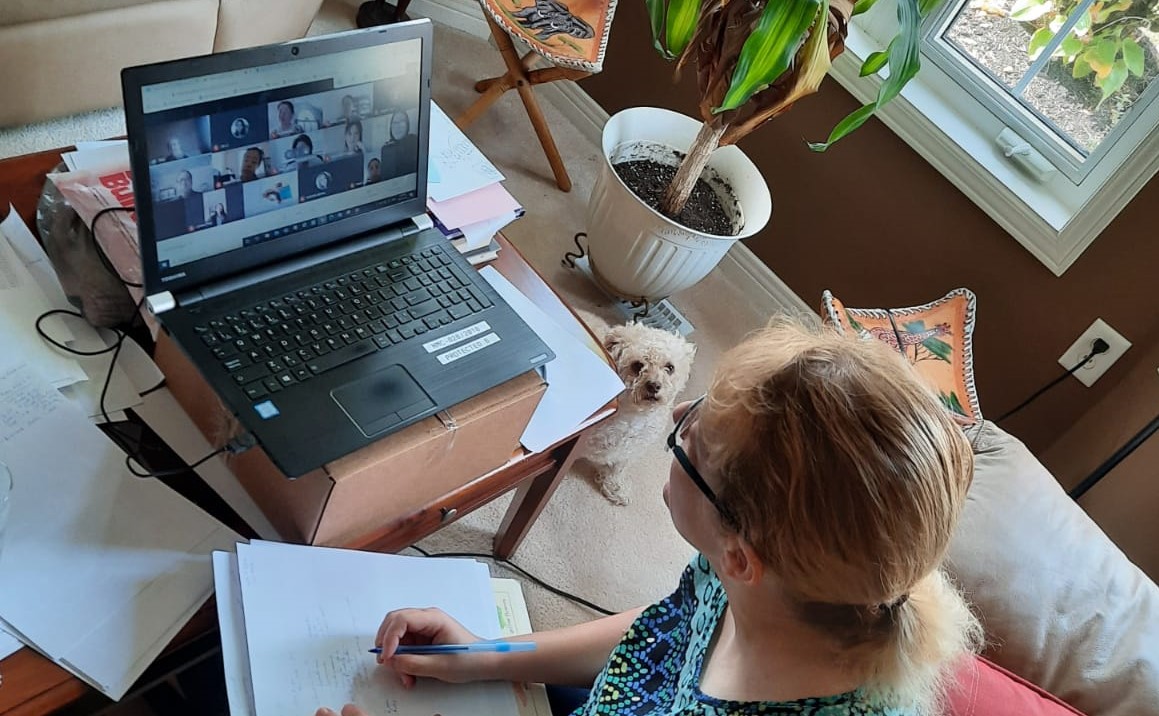Despite the COVID-19-triggered lockdowns, Canada’s settlement sector has managed to keep the ball rolling by serving clients online. Immigration, Refugees and Citizenship Canada (IRCC) this month allocated $30 million for service delivery improvements (SDI) to enhance the sector’s digital capabilities. The sector leaders believe that the funding paves the way for a hybrid model of settlement services in the future.
The $30 million allocation is the first funding from the government since the pandemic began. The objective is to support the online service delivery model of the settlement sector “to support newcomers’ successful integration in the COVID-19 recovery period.”
The projects would be funded under the categories of leveraging technology, increasing employer involvement, and building the capacity of the sector.
Debbie Douglas, the Executive Director of Ontario Council of Agencies Serving Immigrants (OCASI), says that sector players will see which service is best provided online and which should be provided in-person in conformity with safety measures. “Many organizations are heading in that direction,” she added.
“We are heading to a new era of the sector, at least for my organization; I am open to blended services,” says Effat Ghassemi, Executive Director of the Newcomer Centre of Peel (NCP).
She believes that “blended services” will accommodate all sorts of clients. Instead of just coming to the centre by bus or walking in cold winters, they can access services online.
Kim Jenkinson, Executive Director of Halton Multicultural Council (HMC Connections), appreciates IRCC’s commitment to innovation as long as the principles of providing responsive, practical and quality services are intact.
In her experience, there are people in need of both kinds of services. Online English learning classes give flexibility to clients who have caretaker responsibility at home, but for clients with low language skills, in-person mode is easier, as they learn more from human interaction.
“I see the place for online classes for some people forever because of the transportation issue and flexibility,” Jenkinson added.
IRCC supported settlement sector to overcome digital literacy challenges
It was March 17 when the shutdown was announced, “I asked all the staff to take important information with them, pack up and go home,” recalled Ghassemi.
NCP resumed its services online the next day, but they were not digitally equipped in full. Initially, laptops were rented for the staff. Later, when it became clear that lockdown was going to last for a long time, NCP decided to buy out the technology, costing around $15,000.
Conventionally, IRCC is tough with budget structures, but in this exceptional situation, the Government allowed the traditional expenses to be repurposed to serve clients online. The sector players identified the gaps and kept the funders and decision-makers informed.
“IRCC showed flexibility,” says Ghassemi. “They gave us the opportunity to discuss with them and utilize the slippages.”
She shared that when schools opened after the summer break, parents showered the centre with questions. More settlement staff at schools were needed, and NCP is hiring new staff to support parents from African countries.
The message that came out from IRCC was to do the best possible. “It’s our job and passion to serve people, so it was really good to get that support by IRCC,” says Jenkinson.
NCP and HMC Connections’ request to hire more IT professionals was also accepted, and the purpose was to support the staff who are not tech-savvy.
Clients got support in a variety of creative ways
Most clients were not used to a remote delivery model, but got some support in terms of the equipment provided by various school boards to the students. The devices were then shared by the parents and grandparents living in the same household.
“We created a lot of basic YouTube videos on how to use digital platforms in a number of languages, created brochures in around 40 languages to stay connected with the clients,” says Ghassemi.
“Of course, there were hiccups in the beginning,” says Douglas. Appreciating the sector’s resilience, Douglas adds, “a lot was overcome by organizations just being creative.”
Douglas shared that some organizations beefed up their own internet connection so that the clients could park their cars close to the office building, access the internet and continue using the services. This was particularly frequent with language services.
At HMC, the administrative staff with different language skills were converted into digital literacy assistants, especially for the lower-level LINC (Language Instruction for Newcomers to Canada) students whose technical capabilities make it challenging for them to get into the digital classroom.
The pandemic teaches many lessons
Ghassemi hasn’t been complaining about the pandemic, as she thinks that it has lessons in it.
She focused on the professional development of her staff and the introduction of new policies, including email ethics to improve the electronic communication process.
She comforted the staff members who were experiencing anxiety, particularly those under stress due to low digital literacy, and requested the managers to be compassionate with them.
“I requested them to teach their colleagues and do the hand-holding,” she said.
Jenkinson shared that help and collaboration were everywhere; Google provided the class platform for free, and the Halton District School Board has been supportive in terms of guidelines.
Due to job loss, some families were rendered homeless, and there was no way to assist them without seeing in person, which HMC staff did with safety protocol.
The number of clients and services available have not declined even with the borders being closed. Although stats were badly affected in the beginning, as things started to flow and all functions were in place, NCP reported a rise of 3 per cent in clientele and 16 per cent in services for September 2020 compared to the same period last year.
HMC has received funding for two extra language classes and they were fully taken up, Jenkinson added. The waiting list has gone down from 400 to zero.
Tazeen is based in Mississauga and is a reporter with the New Canadian Media. Back in Pakistan where she comes from, she was a senior producer and editorial head in reputable news channels. She holds a master’s degree in Media and Communication and a certificate in TV program production from Radio Netherlands Training Center. She is also the recipient of NCM's Top Story of 2022 award for her story a "A victim of torture, blogger continues fight for human rights in Pakistan"





